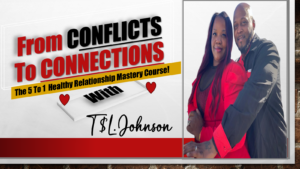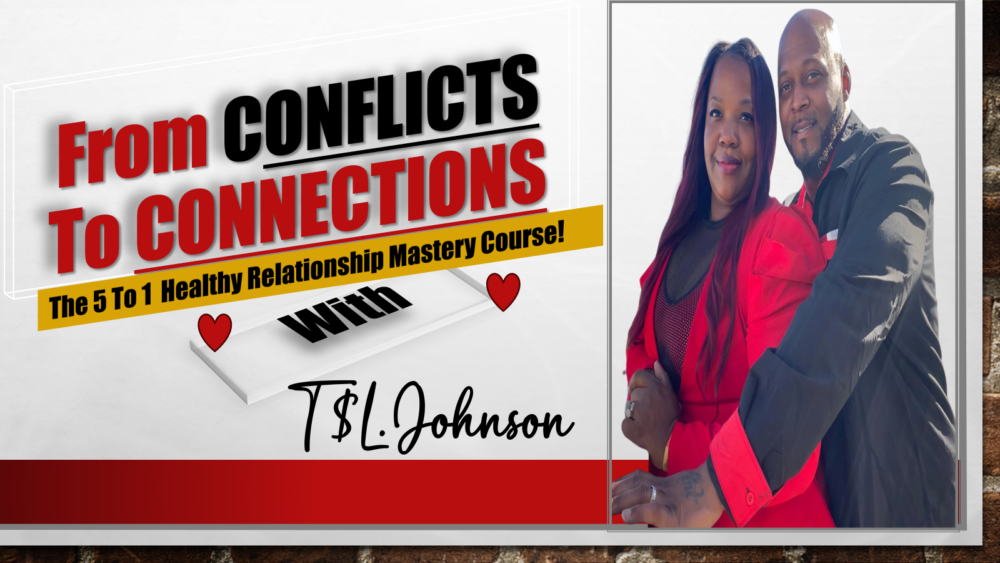Hey there! I want to talk about something that we all experience at some point—arguments. Whether it’s with a friend, family member, or colleague, disagreements can get heated. But fear not! I’ve found some effective ways to find that elusive common ground, and I can’t wait to share these insights with you. Here’s how I approach the challenge of navigating arguments.
Start by Actively Listening
Give Full Attention
First things first, when you’re in the middle of a disagreement, it’s super important to actually listen. When I say listen, I mean really listen. Often, we’re just waiting for our turn to speak, but that doesn’t help anyone, right? I’ve found that if I put my phone away and genuinely focus on what the other person is saying, it changes the whole dynamic of the conversation.
When you give someone your full attention, you send the message that you value their thoughts and feelings. This creates a more respectful environment, which is crucial when things get heated. Plus, you might just pick up on some important details that could help bridge the gap between your two perspectives.
So, the next time an argument comes up, try it out. Take a deep breath, lean in, and show them you’re really listening. It’s a game-changer!
Ask Clarifying Questions
Once I’ve shown I’m listening, I like to follow up with some clarifying questions. This means I’m not just nodding along; I’m trying to understand where they’re coming from. Questions like, “Can you explain that a bit more?” or “What do you mean by that?” are great ways to dig a little deeper.
By asking questions, I not only get more information but also demonstrate that I’m interested in understanding their point of view. It helps me to see things from their angle, and often, it can reveal shared values that we may not have acknowledged before.
Plus, asking questions can slow down the conversation and reduce tension. You’ll notice that instead of escalating the argument, you’re turning it into a dialogue—even if it’s tough!
Summarize Their Points
After actively listening and asking clarifying questions, I find it really helpful to summarize what the other person has said. This isn’t just repeating their words; it’s about distilling their main points and showing that you comprehend their arguments.
For example, I might say, “So, if I’m understanding you correctly, you’re worried that…” This can help both of us ensure we’re on the same page and might even clear up any misunderstandings before they blow up into major issues.
And here’s the kicker: summarizing can often reveal that we actually agree more than we think! So, don’t skip this step if you want to find that common ground.
Practice Empathy
Put Yourself in Their Shoes
Empathy is a powerful tool—seriously, it can change everything in a conversation. When I find myself in an argument, I try to imagine how the other person feels. If I were in their position, how would I see things? It’s tough to do sometimes, but it’s worth it.
By putting myself in their shoes, I can better connect to their emotions and motivations. This doesn’t mean I have to agree with them, but it helps me understand where their opinions are coming from, which can soften the conflict a bit.
Next time you’re in an argument, give this a go. You might uncover some underlying reasons why they feel the way they do, and that can open the door to finding common ground.
Acknowledge Their Feelings
One way I practice empathy is by acknowledging their feelings. I’ve found that simply saying, “I can see why that would upset you” or “It must be frustrating to feel that way” can go a long way. It shows that I’m not just focused on my own feelings, but that I genuinely care about theirs too.
Acknowledgment doesn’t mean I have to agree; it just means I recognize their experience. This can create a sense of safety in the conversation and encourages them to reciprocate. You’d be surprised how much acknowledgment can de-escalate tension.
So, next time you’re in an intensifying discussion, try including a bit of acknowledgment. It could lead to a more productive exchange!
Find Common Values
As I engage in conversations, I always look for common values. No matter how different our opinions are, there usually exists some kind of fundamental value that we can agree on. When I identify these, it creates a bridge between us that can be incredibly powerful.
For instance, in a disagreement about a project direction, we might both share a value for innovation and creativity. By highlighting these commonalities, I can steer the conversation toward collaboration rather than conflict.
Finding common values not only fosters goodwill but also encourages a more solution-oriented approach. And that’s what it’s all about, right? Working together to find a way forward.
Keep Your Cool
Stay Calm
One of the toughest parts of an argument for me is keeping my cool. Emotions can flare up, and it’s easy to lose your temper. But I’ve learned that if I take a moment to breathe and stay calm, I can navigate the conversation much more effectively.
I do this by taking short pauses. When I feel my blood boiling, I remind myself that reacting impulsively isn’t going to help. Instead, I focus on staying composed and responding thoughtfully. It helps in keeping the tone respectful and prevents escalation.

Believe me, staying calm sets a positive tone for the conversation, allowing both parties to express themselves without fear of blowback. It’s a bit like magic; the calmer I am, the calmer they become.
Use “I” Statements
When I do respond, I try to use “I” statements rather than “you” statements. Using “I feel” instead of “you always” shifts the focus away from blame and toward expressing my own feelings. It’s less confrontational and helps keep the conversation on a more constructive track.
For instance, instead of saying, “You never listen to me,” I might say, “I feel unheard when I’m talking.” It’s all about taking ownership of my reaction rather than pointing fingers. This simple change can transform the vibe of the conversation.
So, if you’re trying to keep cool in an argument, remember to own your voice! It makes a world of difference.
Take a Break if Needed
Sometimes, despite our best efforts, the discussion becomes too heated, and that’s okay. I’ve learned that it’s perfectly fine to take a break. Stepping away for a few minutes can clear my head and help me process my emotions before diving back into the dialogue.
During that break, I might go for a short walk or practice some mindfulness. This time away can usually lead to greater clarity and can even ease feelings of frustration. Plus, it shows that you value the conversation enough to want to return to it when both sides are calmer!
So, don’t hesitate to take a breather. It can be the difference between a destructive argument and a constructive discussion.
Seek Solutions Together
Collaborate on Ideas
Instead of getting stuck in a cycle of disagreement, I always aim to collaborate on solutions. It’s easy to fall into the trap of insisting my way is the only way, but I’ve learned that working together opens many doors. When I invite the other person to brainstorm with me, it often leads to creative resolutions.
We might find a middle ground that blends both our ideas, which can lead to innovative solutions neither of us would have thought of alone. I’ve had so many “aha!” moments by simply engaging with the other person like a teammate!
If you want to reach an agreement, shift the focus from conflict to collaboration. It creates a win-win situation rather than a battle to be fought.
Set Mutual Goals
Having common goals can significantly improve how we approach disagreements. I make it a point to discuss what both of us ultimately want from the situation. By establishing mutual goals, I can direct our discussions toward achieving those goals rather than splitting hairs over who’s right.
For example, in a workplace disagreement, our goal might be to deliver an effective project. By aligning our focus on that, I’ve found that we work together more harmoniously, even if we disagree on how to get there.
So, when an argument begins, take a moment to think about what both of you can ultimately agree on. It might just change the whole direction of the conversation!
Be Willing to Compromise
No one likes losing or giving in, but compromise is key. I’ve come to understand that sometimes, we both have to budge a little to find that sweet spot. Compromise doesn’t mean I’m weak or wrong; it means I’m committed to the relationship and willing to accept that we can’t always have things exactly our way.
I often say, “Let’s find something that works for both of us,” and approach it from a place of willingness to adapt. This attitude fosters a team spirit and can make the discussion feel less like a showdown and more like a partnership.
So, embrace the art of compromise! It may require some practice, but it’s a powerful way to navigate disagreements without wrecking your relationships.
FAQs
1. What if my conversation partner refuses to listen?
Sometimes, you may encounter individuals who are unwilling to engage openly. In such situations, it’s essential to remain calm and patient, continuing to show genuine interest in their perspective. If that doesn’t work, it’s okay to step away and revisit the discussion later when emotions have settled.
2. How do I maintain my composure during intense arguments?
Maintaining composure relies on self-awareness. Take deep breaths, remind yourself to stay civil, and if necessary, take breaks during the conversation. The goal is to create a constructive dialogue rather than a combative one.
3. What if we still can’t find common ground?
It’s completely normal to disagree at times. If you’ve both expressed your thoughts honestly and tried to understand one another yet still stand apart, it’s okay to agree to disagree. Just knowing you’ve both made the effort is a win in itself!
4. Can these techniques help in all types of arguments?
Absolutely! While some techniques may work better in specific situations, the core concepts of listening actively, practicing empathy, and seeking solutions can effectively be applied to personal, professional, and even casual arguments.
5. Is it possible to turn an argument into a constructive conversation?
Yes, it’s possible! By implementing the steps discussed, such as maintaining a respectful tone and focusing on common goals, you can shift from a confrontational stance to a more constructive conversation that fosters understanding and collaboration.

Schedule Your First 20-Minute Coaching
Call With Us Today to see if we fit . You pick the price!
Click Here




